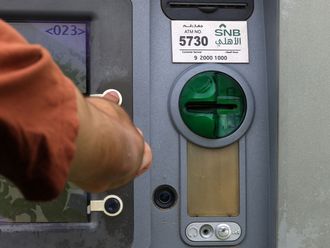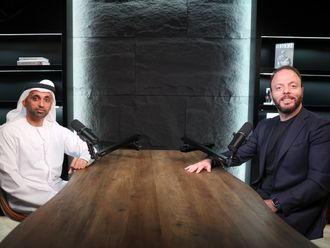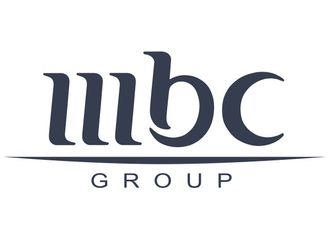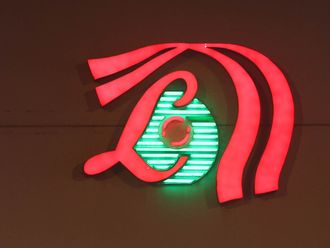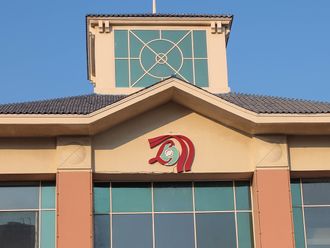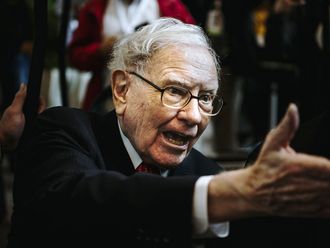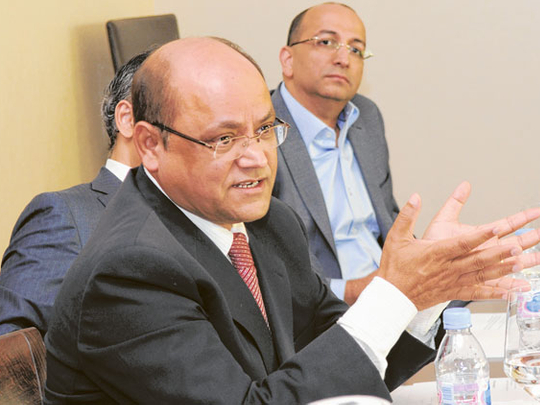
Dubai: A free trade agreement (FTA) between India and the UAE would help increase bilateral trade flow between the two countries, a top Non-Resident Indian businessman said.
"An agreement will not only help boost trade, but also give UAE investors greater access to growing Indian markets," Sudhesh K. Aggarwal, President of Indian Business Leaders Forum (IBLF), Chairman of Indian Business and Professional Council (IBPC) Sharjah and Chairman and Managing Director of Giant Group of Industries, told Gulf News in an exclusive interview.
India-UAE bilateral trade rose from only $180 million in the 1970s to a whopping $43 billion per annum in 2009-2010, making the UAE India's largest trading partner. This is made up of $23.97 billion worth of exports and $19.49 billion worth of imports from the UAE.
India's trade with the UAE represents about 9.1 per cent of India's total trade valued at $467.12 billion in 2009-2010.
About 13.41 per cent of India's total exports land in the UAE — that serves the GCC, Iran, Iraq and parts of the Central Asian countries.
"Similarly, a FTA will help the UAE attract more Indian investment in the UAE's key economic areas. It will also help the large NRI investors who have been contributing to the UAE economy for decades," he said.
Non-Resident Indian (NRIs) make up the biggest community in the UAE, outnumbering all other nationalities. They are estimated to own nearly half of the UAE's registered companies that are currently active.
Aggarwal spoke at length about the FTA, trade and investment and his organisation's moves to strengthen the relations between the two countries.
Gulf News: What are the latest developments as far as the FTA between UAE and India is concerned? What is the role of the Indian business community in this regard?
Sudhesh K. Aggarwal: A free trade agreement will definitely boost the existing economic ties between the two countries. However, we see more opportunities in investment. The UAE has some of the best infrastructure in the world and perhaps the best business climate for Indian investors. The country needs investments to grow the manufacturing sector where Indian investment could really help to expand the UAE's industrialisation. On the other hand, the UAE has a large pool of resources with investors looking for opportunities in the emerging markets.
India provides perfect opportunities for growth and faster returns, as the markets in the West still remain challenged due to the global recession.
Geographically, the countries are close and could be reached in a few hours by air. Historically, the countries share long trade links that spans across centuries. The Indian currency — the Rupee — was the currency of the Trucial States before the independence of the UAE.
I believe a FTA could help boost bilateral investment that will unlock greater growth opportunities for both the countries and investors.
The NRI business community has been pressing for this for a long time. We have been very vocal on these issues. There are some positive moves on the FTA and I think the countries are coming closer to reaching a consensus on this.
Could you explain the logic behind establishment of the IBLF, when you already have the IBPC that represents the Indian business community?
IBPC Sharjah has played an instrumental role in establishing the India Trade and Exhibition Centre (ITEC) in Sharjah since 2003 with India. After lots of efforts, in December 2007, the ITEC became a reality. An approximately $8 million (Dh29.3 million) project became operational by December 2009, headed by myself, for promoting trade and investment between India and Middle East and North African countries as a non-profit organisation. We had established IBLF under the ITEC to engage more business leaders. Today, we have a commercial display, promotion and marketing team to help Indian businesses.
What is IBLF's role in promoting bilateral ties between the two countries?
We are very pro-active on this. Although it is a matter of time before the FTA is signed, we at the IBLF are not waiting for this to happen. We have undertaken a number of initiatives to boost ties. We are planning to set up an India Investment Desk at the IBLF to help foreign investors identify opportunities and invest in India. Although this is targeted towards attracting more investment from the UAE's business community, the India Investment Desk will support investors from other nationalities and countries. We hope to set this up sometimes later this year.
What are the issues faced by the investors and what else could help increase the flow of investment?
A long-term investor's visa could help attract more investment and investors to the UAE. I believe, the three-year visa that has been further reduced to two years, should be of a longer duration.
Asking investors to renew visas to run business or work every two years is a major hassle and wastes the valuable time of businessmen. This could be linked to the size of investment and I'm sure, investors would be more than happy to pay extra fees for a longer-term visa.
What other obstacles do you see that is hampering the growth in trade and investment in India?
Lack of political stability in India. By this, I mean the present Indian coalition government is not moving fast enough in addressing the real issues. Pressures within the coalition are not letting the government address real issues that is affecting growth. It cannot take firm decisions that would fast-track economic growth.
What about the companies and investment laws in the UAE? Do you think these needs to change to help foreign investment in the UAE?
I do not think that Companies Law is an issue. Investors who want to retain 100 per cent ownership in businesses, have the option to invest in free zones. Besides, companies and investment laws are also changing. I believe the UAE government is currently reviewing them. These laws could be adjusted according to the market needs and realities.
Your organisation has set up a branch for the young Indian business leaders. Could you elaborate on this?
Yes. We have a strong team of young business leaders — mostly the second or third generation — that are gradually taking over the day-to-day business affairs from their fathers. They are forward-looking, modern, vibrant and tech-savvy. About 50 per cent of our members belong to this younger generation.
You have been a proponent of Brand India?
Brand India is the refinement of India's image, its strength as a global economic power. We want to strengthen its position by promoting trade and investment that will unlock hidden potential and help accelerate further growth.
Donning many hats
Sudesh K. Aggarwal, a self-made Indian business magnate and industrialist based in the UAE, wears many hats. He is the President of the Indian Business Leaders Forum (IBLF), Chairman of Indian Business and Professional Council (IBPC) Sharjah and Chairman and Managing Director of Giant Group of Industries and leader of the Smast Bharitiya Party. He was born in 1952 to a middle class family.
His story mirrors those of successful NRI businessmen who have generated a large pool of wealth through hardship and perseverance and who have helped the UAE economy by creating employment.
An MBA from H.P. University in Shimla, he saw how his father, a medical practitioner, struggled to bring up a large family of five sons and two daughters, together with his ailing parents. The early struggle strengthened his resolve to work hard and solve economic problems. He believed that economic strength is vital for independent action and thought.
After brief stints teaching, he joined Roadmaster Industries in the north Indian city of Rajpura. In May, 1975 he boarded a flight from Amritsar to Kabul en route to Iran and the Gulf to look for greener pastures. He travelled from Kabul to Tehran by road and stayed in the Iranian capital for a couple of weeks before moving to Kuwait as he could not find the right opportunity in Iran. He had no money and hardships were increasing everyday.
In July 1975, he finally got an opening as management consultant with Talal Abu Ghazaleh & Co, an associate of Price Waterhouse International. After a few months, he was transferred to the company's Dubai office and landed in the emirate in November 1975. Since then, he has been in the UAE.
In 1979, he established Aikah Enterprises, a trading company in Dubai, in partnership with Mohammad Tayyeb Khoury, an Emirati.
In 1984, he joined International Heated Forms in Sharjah as its Finance Director. His hard work paid off and subsequently he was promoted to Managing Director in 1985. As circumstances or luck would have it, the owners decided to sell off its operations, and Aggarwal took over. He started Giant Reinforced Plastic (GRP) Industries in April 1989. Since then his business has been growing and today he has diversified into trading, real estate, travel and tourism and manufacturing home furnishings.
These days, most of his time is spent on public activities and social work, helping the poor.
$500 million fund
The Indian Business Leaders Forum (IBLF) is setting up a $500 million fund for investment that, once raised, could help spur investment between the UAE and India, a top official said.
"We are working to create an India Investment Consortium in the UAE with a $500 million fund for investment in key economic areas in the countries," Sudhesh K Aggarwal, President of IBLF, said.
"It might take a while to finalise this, but it is going to happen. We are seeing eagerness among investors to subscribe to the fund."
If established, this would be one of the first such initiatives by an ethnic business community in a foreign country.




